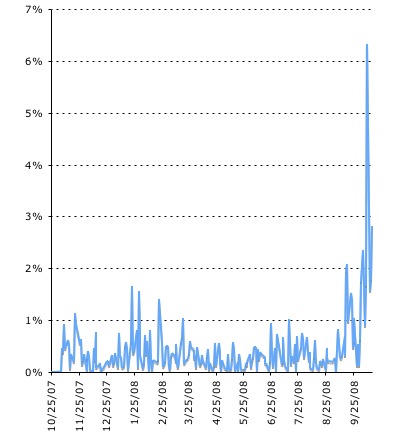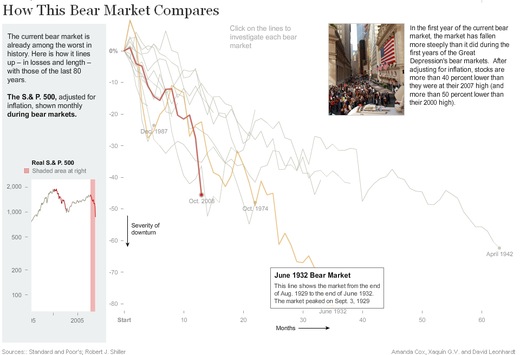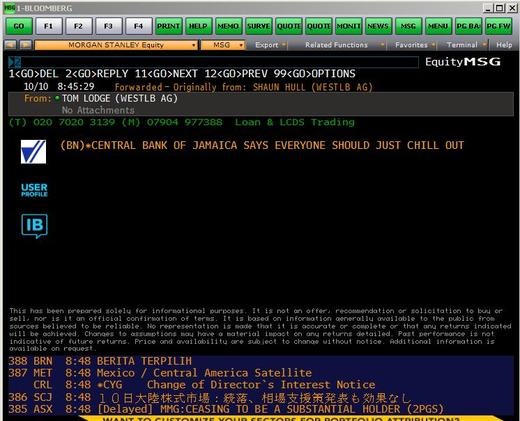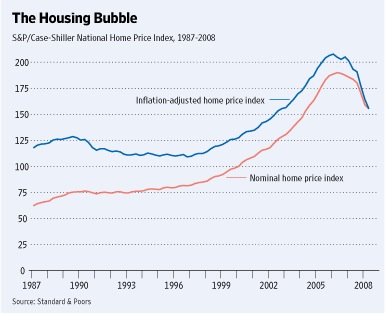I’ve had this post waiting in draft form for quite a while (the article in question appeared almost two years ago). It seems apropos to my last post, so no more procrastinating (on this post, anyway).
In a fascinating paper published at the end of 2006 in Science, Kathleen Vohs et al report on nine experiments regarding the influence of money on our behavior. The rather dry abstract doesn’t begin to do justice to the content.
Money has been said to change people’s motivation (mainly for the better) and their behavior toward others (mainly for the worse). The results of nine experiments suggest that money brings about a self-sufficient orientation in which people prefer to be free of dependency and dependents. Reminders of money, relative to nonmoney reminders, led to reduced requests for help and reduced helpfulness toward others. Relative to participants primed with neutral concepts, participants primed with money preferred to play alone, work alone, and put more physical distance between themselves and a new acquaintance.
The article itself is, I think, available only to AAAS members; one of the experiments will give a better idea of what the rest of the article is about.
In Experiment 5, we wanted to give money-primed participants a helping opportunity that required no skill or expertise, given that the help that was needed in the two previous experiments may have been perceived as requiring knowledge or special skill to enact. The opportunity to help in the current experiment was quite easy and obvious, in that it involved helping a person who spilled a box of pencils.
Participants were randomly assigned to one of three conditions that were manipulated in two steps. Each participant first played the board game Monopoly with a confederate (who was blind to the participant’s condition) posing as another participant. After 7 min, the game was cleared except for differing amounts of play money. Participants in the high-money condition were left with $4000, which is a large amount of Monopoly money. Participants in the low-money condition were left with $200. Control condition participants were left with no money. For high- and low-money participants, the play money remained in view for the second part of the manipulation. At this step, participants were asked to imagine a future with abundant finances (high money), with strained finances (low money), or their plans for tomorrow (control).
Next, a staged accident provided the opportunity to help. A new confederate (who was blind to the participant’s priming condition) walked across the laboratory holding a folder of papers and a box of pencils, and spilled the pencils in front of the participant. The number of pencils picked up (out of 27 total) was the measure of helpfulness.
The result? “Even though gathering pencils was an action that all participants could perform, participants reminded of financial wealth were unhelpful.” And this was the consistent result across nine rather imaginative experiments.
In one of the experiments, all it took to create the money-primed selfish bias was exposure to a poster of currency on the wall (controls saw a poster of a seascape or a flower garden). In another, subjects “happened” to be in front of a computer screen while filling out a questionnaire.
Participants in the money condition saw a screensaver depicting various denominations of currency floating underwater . Participants in the fish condition saw a screensaver with fish swimming underwater. Participants in the no-screensaver condition saw a blank screen.
As Sharif Abdullah says, “we are lined up at the same trough”; we can’t help ourselves.
What might prime us in the other direction, I wonder?





